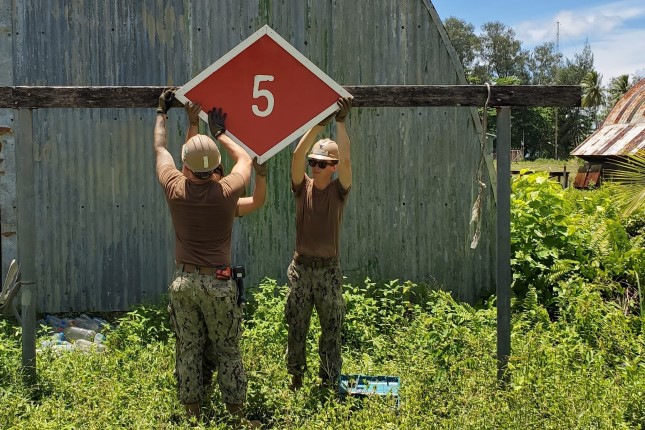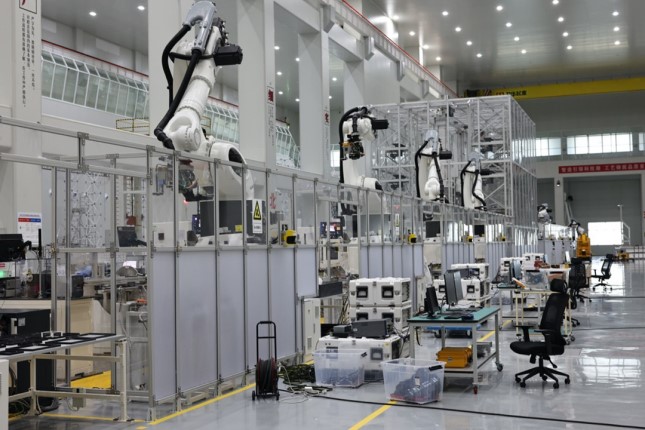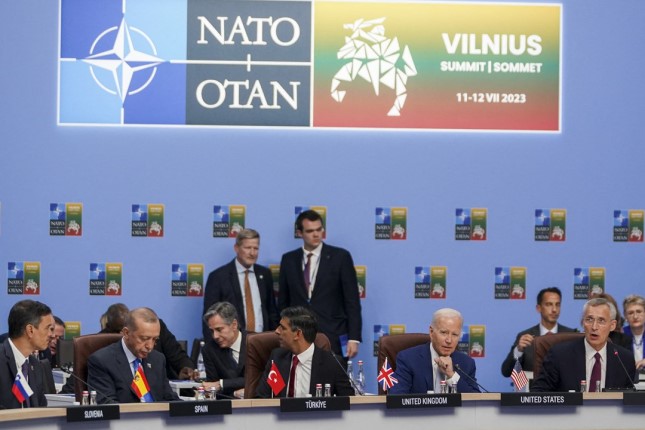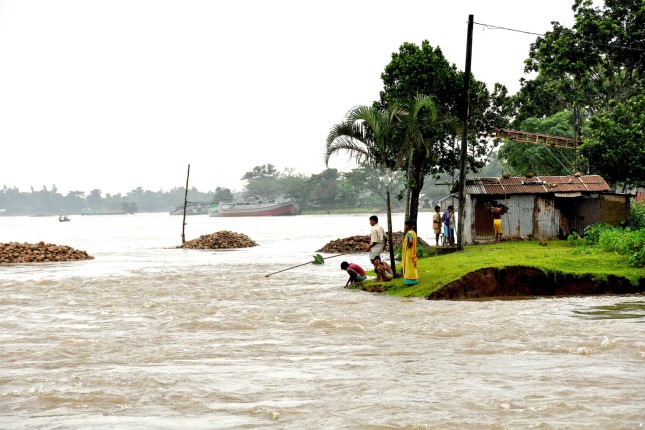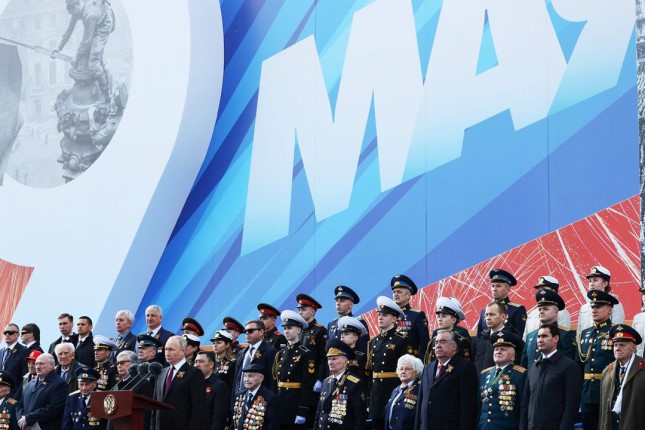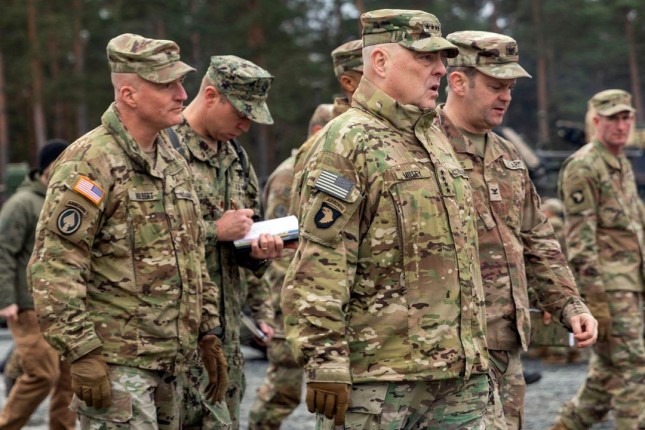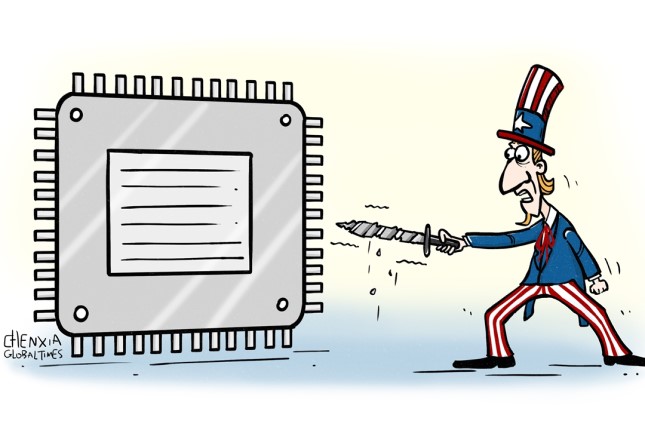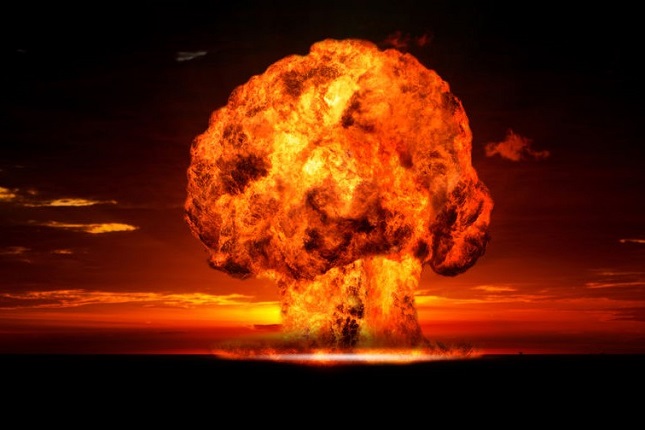The US is expanding a naval base in Papua New Guinea as part of its military buildup in the Asia Pacific that’s being done to prepare for a future war with China, USNI News has reported.
The US signed a Defense Cooperation Agreement (DCA) with Papua New Guinea last year that gives the US military “unimpeded access” to two ports, three airports, and the Lombrum Naval Base.
According to USNI, the US Navy is planning three projects at Lombrum: the construction of a regional maritime training center, a small boat team and boson facility, and the overhaul of a 118-foot-long deteriorated small boat jetty. The projects are estimated to cost somewhere between $11 million and $25 million.
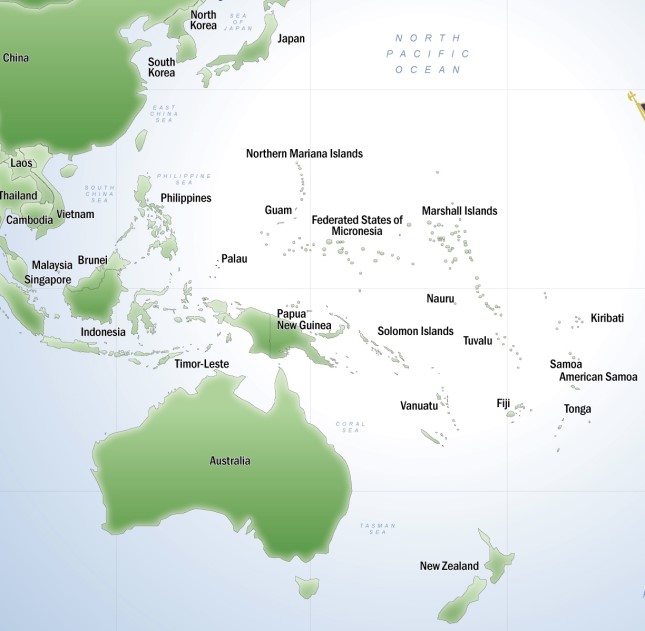
Map of the region showing Papua New Guinea. Photo: US Indo-Pacific Command.
The Trump administration announced it would help expand the Lombrum Naval Base in 2018 in a move seen as a response to Chinese infrastructure projects in the region. However, the administration never allocated funds for the project.
In its announcement of the projects, the US said the purpose was to “support the PNGDF (Papua New Guinea Defence Force), maritime security operations, US military personnel participating in joint exercises, and USINDOPACOM Theater Campaign Plan with various critical facilities located at Lombrum Naval Base.”
US military officials have been explicit that the purpose of gaining access to more bases in the region is to expand China’s potential list of targets in a future war. Gen. Kenneth Wilsbach, the former head of US Pacific Air Forces who is now the commander of Air Combat Command, made this clear in comments to Nikkei Asia last year.
“Obviously, we would like to disperse in as many places as we can to make the targeting problem for the Chinese as difficult as possible,” Wilsbach said. “A lot of those runways where we would operate from are in the Pacific Island nations.”
Source: AntiWar.
